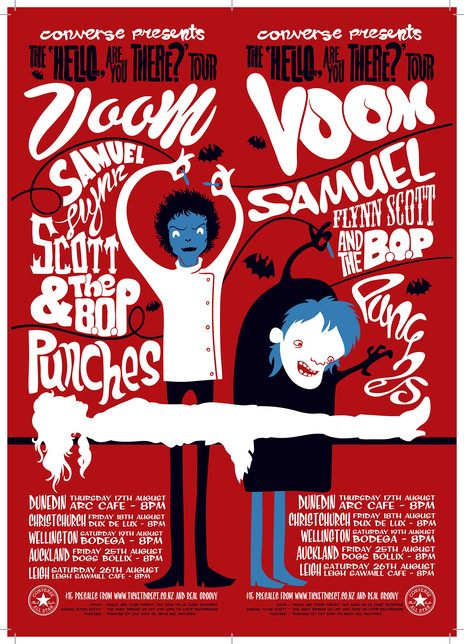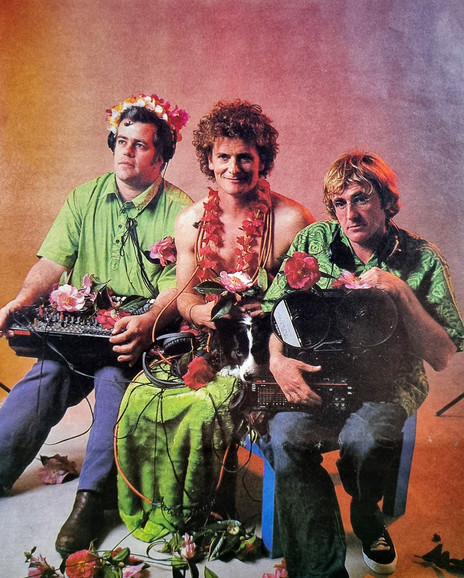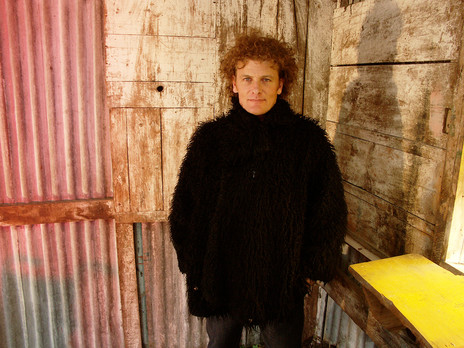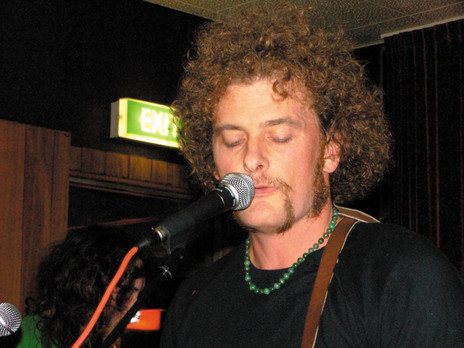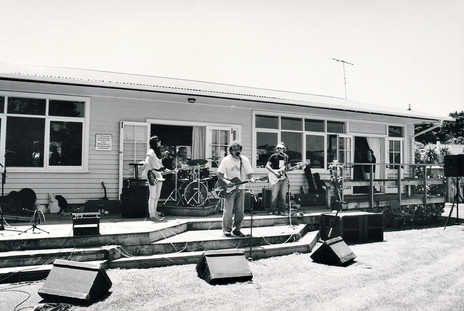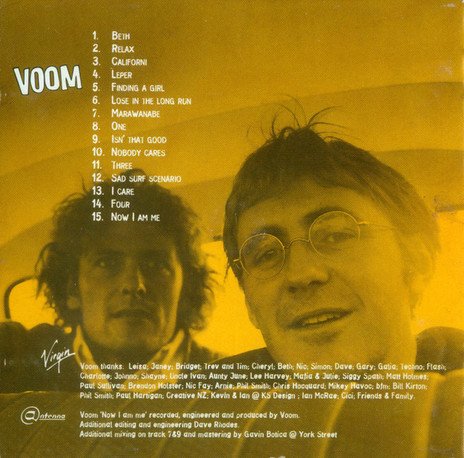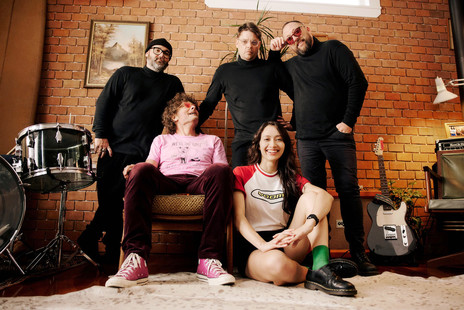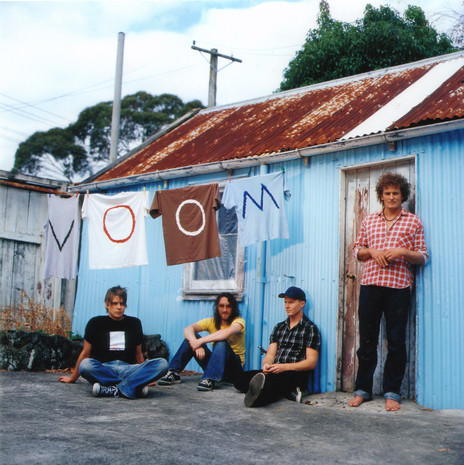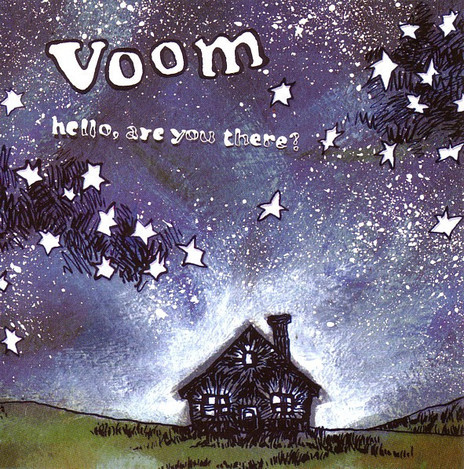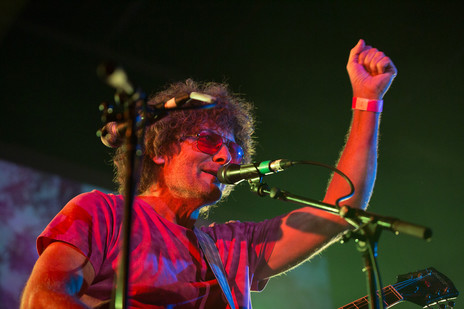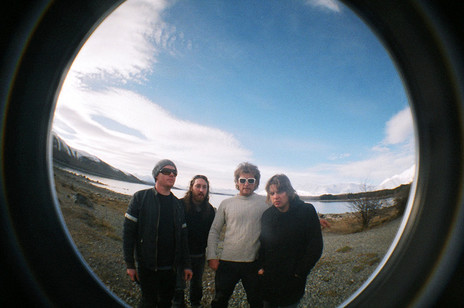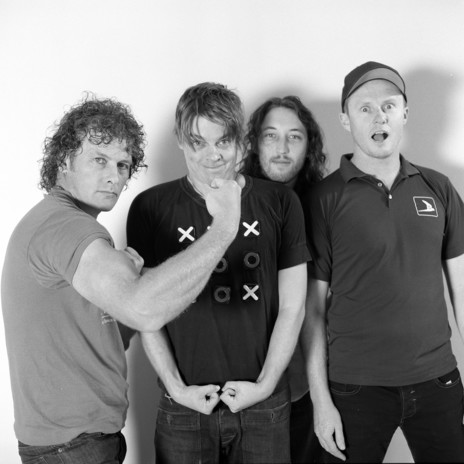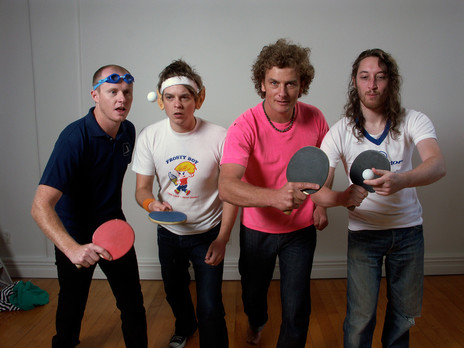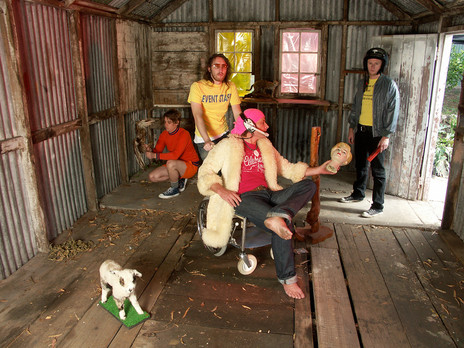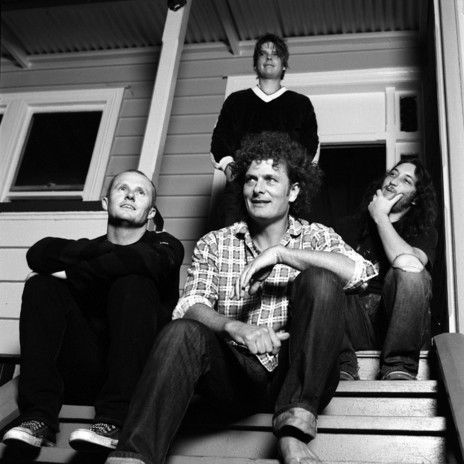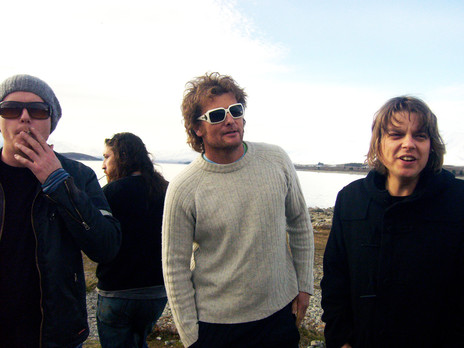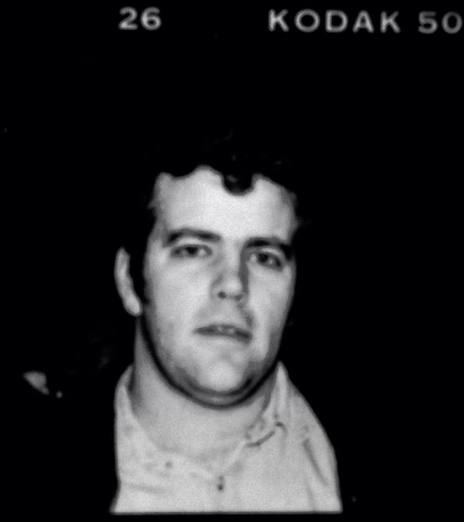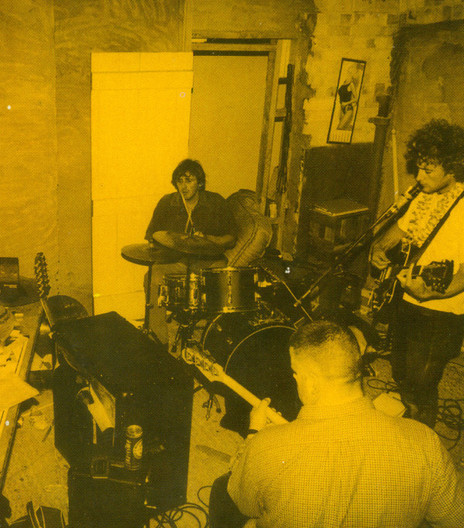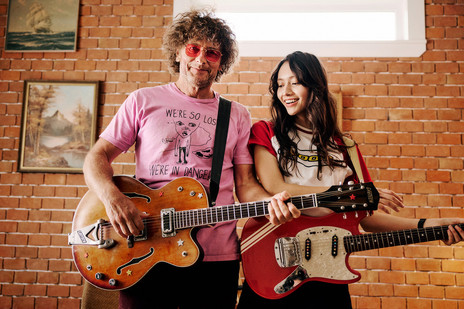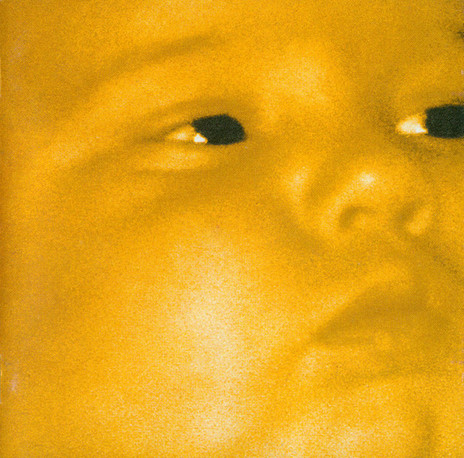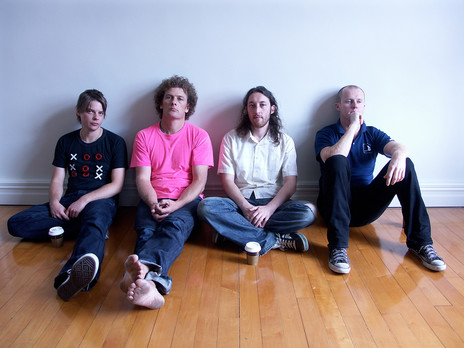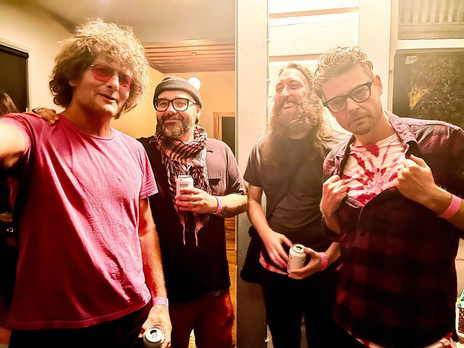After Macaskill moved overseas, Moller kept himself busy hosting Buzz’s Kiddies Show on Auckland student radio station bFM and mumbling song ideas into a dictaphone. After losing his job due to the 1987 stock market crash Moller went outside and approached a plastering company who were working nearby and asked them for a job.
When Macaskill returned, they formed Voom and went into business as Solid As Plasterers, through which they gave part-time work to many other musicians including Jim Laing from Jean-Paul Sartre Experience (JPSE) and Shayne Carter from Straitjacket Fits.
Moller was buoyed by his dictaphone ditties and insisted they continue writing in an improvisational way. He used phrases from a non-smoking cassette to write lyrics for the song ‘Relax’ which became a student radio favourite in 1992. They still had no drummer so Gary Sullivan from JPSE programmed the beats on a drum machine.
They were flatting with JPSE guitarist Jim Laing, who decided they needed a push to play a live show so he added them as support on the poster for JPSE’s next gig. Voom hurriedly added Chris Mckibbin (aka Lee Harvey) on bass and Bill Kerton on drums to create a line-up for the gig. Mckibbin already had his own group, Steam. Moller approached one of the other members of that band, Danny Mañetto, to see if he would join. Mañetto wasn’t sure until he realised that ‘Relax’, one of his favourite songs on the radio, was a Voom song.
When Voom subsequently supported Thorazine Shuffle at Pelican Bar in Elliott Street, Auckland, Mañetto asked to get on stage to play guitar for the last song. This led to him being invited along to a band practice. He showed up expecting to be an extra guitarist in a five-piece, but instead found himself cast in the role of bassist in a trio with Moller and Macaskill.
Mañetto already had some solid experience. He’d played the cello parts on Straitjacket Fits’ ‘She Speeds’ and ‘Dialling A Prayer’ and performed and recorded with Hamish Kilgour – first as Monsterland (who released an EP through US label Homestead), who then changed their name to The Mad Scene (releasing a full length album through Flying Nun). When Mañetto relocated to Auckland, he had joined Steam and Shaft. He gave up the latter after deciding three bands was too much. Steam folded and only Voom remained.
Moller, Macaskill, and Mañetto took an unconventional approach to songwriting
Moller, Macaskill, and Mañetto took an unconventional approach to songwriting – they simply recorded themselves every time they practised, capturing songs at the same moment as they wrote them. Mañetto would play either second guitar or bass, then add the other missing part afterward if it was needed.
There was no time to overthink things, so whatever big riff, band in-joke, or moment of sincerity inspired them at the time became a potential song. This didn’t always lead to the best live shows, since the band still tended to be improvising and working things out onstage. They continued in this mode until they filled 30 reels of 8-track tape – just as many Tascam 4-track cassette tapes were recorded before Mañetto joined.
Now I Am Me
The band reached the point where they needed a record deal. In a moment of sudden enthusiasm, Moller took their demos in person to Flying Nun, Wildside, and Pagan. The best fit seemed to be Flying Nun, but label founder Roger Shepherd was out of the country. Label executives Lesley Paris and Paul McKessar were enthused by working with Voom but told Moller he’d have to wait until Shepherd returned. Instead, Moller made a second visit to Pagan Records and managed to sway Trevor Reekie to sign them, with the encouragement of Sheryl Morris. Reekie had recently decided to start the Antenna label to release indie guitar music.
Reekie cajoled them into finally getting their recordings together for release, even helping them get a QEII Arts Council grant to re-record their song ‘Relax’. Dave Dobbyn happened to be on the panel and was already a fan of the song, constantly haranguing them to record it properly whenever he bumped into them. Rather than going into a serious studio, they put the money towards adding new equipment to their own set up.
Moller’s partner Beth had moved to Australia, but he felt torn about leaving behind his work and band to join her. He wrote the song ‘Beth’ to explain his feelings, but when he played it to Mac they found that the meaning wasn’t conveyed clearly. Mac encouraged him to rewrite the song with the most direct lyrics possible. Moller then played the recording down the phone to Beth as a heartfelt apology. The song had achieved its aim, so he then felt he had no further use for it.
Meanwhile, Reekie was pestering the band for more demos. They supplied a tape with some options. The tape was left playing and flipped over to the other side where the recording of ‘Beth’ still remained.
Moller was blindsided by what happened next.
“My friend Techno – who used to do the kids show with me – came up to me on the street and said ‘I really love that new song of yours that’s gone to number one on bFM.’ He started singing ‘when you went to Australia …’ I was like, ‘What song was that? How do you know that song?’ I had this meltdown moment and went bright red. I felt really uncomfortable and exposed. It was so embarrassing. Every time I went out, everyone was singing the song back to me. I slowly realised that it was actually really cool that there was such power in honesty.”
‘Beth’ had a wonderful simplicity: three chords throughout; a wonderfully restrained, almost crawling beat from Macaskill; and a bassline from Mañetto that did just enough to fill out the spacious guitar from Moller. The key to its power was the honesty of the lyrics and the yearning, increasingly desperate sound of Moller’s vocals.
Their debut album ‘Now I Am Me’ (1998) ... varied widely in sound, seriousness, and audio fidelity.
Their debut album Now I Am Me (1998) became a sprawling masterpiece of 15 tracks which varied widely in sound, seriousness, and audio fidelity. For some tracks, the initial tape had been lost so they had to ask friends to supply versions they’d given them. It was left to Dave Rhodes to help mix it into a coherent whole, using state-of-the-art Soundscape digital software to remix the raw instrument tracks along with Moller and Macaskill. It was then mastered by Gavin Botica at York Street Studios.
‘Relax’ was given a delightful music video, with Moller walking through the streets of Newmarket, shedding his clothes while he sang, until he was dressed only in a thong. Video director Sigi Spath wanted Moller to be naked but when he checked with police on whether it was legal, they told him “no” and sent two police officers along to check the filming didn’t break indecency laws.
The album kicks off with ‘Beth’ and ‘Relax’, followed by the super lo-fi ‘Californi’, an impromptu song idea that was captured on a ghetto blaster. And so the album continued – from the beauty of ‘Isn’t That Good’ to the fuzzed out yelling of ‘Marawanabe’ (taken directly from a live-to-air session) to the stoned fever-dream of ‘Sad Surf Scenario’. It was Mañetto’s idea to tracklist the songs in this way, so that the listener got a jolt from track to track.
Antenna’s distributor, Virgin Records, were less than impressed when Voom turned up on the Havoc show and chose to play ‘I Want My Baby’ – a song that wasn’t even on the album. They were lucky the band hadn’t just done an impromptu jam, as they originally discussed.
Voom also played support for UK band Pulp at North Shore Events Centre, once again following their own interests by closing with their as-yet-unreleased lullaby, ‘Peace Be With You Tonight’, dedicated to Mac’s baby son, whose face appears on the cover of Now I Am Me.
The band seemed to be on a roll, releasing a new song and music video for ‘King Kong’ in 2001. Moller was asked to write a rock song for a TV3 rugby campaign, and had put aside two hours each morning to come up with something. He had a riff from a jam session that he liked, but struggled to develop it:
“It was only through writing 1000 lines, then going and choosing a few that I thought weren't too terrible that I was able to get started. I finally had: ‘Shoot me down, I don't care, I'm not going anywhere.’ Every tenth page, I’d circle another line that wasn’t terrible. So that was real constructionist writing. I actually employed that technique later when I taught songwriting at MAINZ. I’d say to the students – don't try to dig diamonds, just keep digging dirt and the diamonds will come.”
The resulting song was not only used for the TV3 campaign, but also a later All Blacks’ Rugby World Cup bid and on a TV commercial for one of the big banks.
The ‘King Kong’ video showed sped-up footage of Macaskill and Moller clowning around in ape costumes
When ‘King Kong’ first came out, Voom released a video showing sped-up footage of Macaskill and Moller clowning around their house in ape costumes. Mañetto was in Spain at the time, so he didn’t appear in the video. Their few live shows over this period had Techno filling in as the third member.
The following year they received NZ On Air Phase Four album funding to record. Before they could put it to use, there was a major falling out between Macaskill and Moller, which saw Macaskill leave the group.
Mañetto was a talented multi-instrumentalist so they started a new line-up with him on drums. For a brief spell they had bassist Mareea Paterson, who played in Auckland rock band Delta and US group Veruca Salt. Her place was then taken by fill-in players such as Bob Cardy (Shaft) and Rich Mixture (Shaft/The D4/Jordan Luck Band).
Bassist Kelly Steven then joined and they played a few times as a three-piece before adding guitarist Nick Buckton (Polaar, The Tokey Tones) who became a motivating force within the group.
The line-up changes continued with Kelly Steven leaving to play with Dimmer, before changing to her married name Kelly Sherrod and launching her own project, Proteins of Magic, leaving Buckton to eventually become Voom’s bassist. The band hit another major road bump with Mañetto’s departure – “They kicked me out,” says Mañetto.
Mañetto went on to be an important figure within the Powertool Records team, acting as resident sound engineer at the label’s UFO venue and providing recording and mastering for the groups. He continued to play in bands such as The Fuzzies, Drop Dead Redhead, Brother Love, and Psychic Maps, as well as reconnecting with Macaskill for the TwentyTen Project.
Hello, Are You There?
Nick Buckton believed that Voom had a great set of songs and he already had a close connection with Lil’ Chief Records, since his two previous groups had been fronted by label co-owner Scott Mannion. Some new blood came into the line-up with two members of Goodshirt joining the band – guitarist Murray Fisher and drummer Mike Beehre. They also had a new manager, Joe McAlpine, who provided a new burst of forward momentum.
Fisher and Buckton were both talented sound engineers, and were able to piece together the songs that the group had already recorded, as well as adding new elements where required. The process of assigning songwriting rights was complicated, given the long gestation of the songs and the friction between the former members.
In 2006, Voom finally came out with a new album, Hello, Are You There? At the time, Lil’ Chief Records was working closely with Sub Pop Records in the US and there was a suggestion that Voom might be the next act to move from one label to the other, as The Brunettes and The Ruby Suns had done. However, the success of the group would end up coming in a much slower and more piecemeal fashion.
‘B Your Boy’ was a perfect rock single and tore up the student radio airwaves, but local commercial rock radio refused to give it a chance.
‘B Your Boy’ was a perfect rock single but local commercial rock radio refused to give it a chance
‘B Your Boy’ was a perfect rock single and tore up the student radio airwaves, but local commercial rock radio refused to give it a chance. Moller’s talent for more emotive, quieter songs hadn’t failed him either. ‘Beautiful Day’ was achingly sweet and ‘I Want My Baby’ had all the heartbreak of ‘Beth’, while ‘We’re So Lost’ had a gentle melancholy that drew the listener in, even while unsettling them. The band hadn’t lost their sense of humour either, given tracks like ‘Happy Just Bumming Around’ and the tripped-out ‘My Friend Satan’.
The album was listed by Nick Bollinger in his book 100 Essential New Zealand Albums and the band went into a fruitful period of live shows and songwriting. Fisher and Buckton lived together in Sandringham and had a permanent band studio space where Voom could get together to practise and jam new songs. They recorded much of this spontaneous music, gathering hundreds of hours’ worth of recordings, which they then picked through to find the bones of new songs.
This activity was brought to a sudden end when Buckton moved to Berlin for a year. Within a few years, Fisher had been forced to give up the studio space and the band came apart further when Mike Beehre moved to the US with his partner Li-Ming Hu (The Tokey Tones).
Voom went quiet for a few years. Buckton already had his own side project as Sidekicknick, and released a debut album, Miscellaneous Adventures, in 2008. He gradually worked on new tracks, eventually amassing so many that he released a double album, The Red Planet Plan/The Blue Planet Plan (2019). Meanwhile, Fisher was busy with Goodshirt reunion gigs and production work for other acts, though he had moved to Northland to escape the high cost of living in Auckland.
Magic
‘We’re So Lost’ gained a second life when Lil’ Chief label-mate Princess Chelsea covered it for her album The Great Cybernetic Depression (2015), also releasing it as a single. Moller later admitted that the song came from a very hard moment in his life.
“Luke Casey (Eye TV, Relaxomatic Project) had a room that he used to rent out to bands. It was like this concrete bunker between the floors of this building. We used to practise there, but I got into this romantic entanglement and I ended up moving into that little band room. It’s like that joke – ‘What do you call a drummer without a girlfriend? Homeless.’ Luke didn’t know I was there. I had to know when other bands were coming so I could get out of there. I’d get buns to eat from the City Mission. I ended up getting pleurisy in my lungs from the water leaking into that room. That was around the time of 9/11 so it felt like the whole world was plummeting into a dark place ... Then I had my 40th birthday and I felt like absolute shit, so I opened up the computer and started making a song … ”
Interest in ‘We’re So Lost’ had an even bigger spike when Jack Johnson put the original on his public Spotify playlist, Jack’s Playlist. This led to the original version and Princess Chelsea’s cover racking up over a million streams between them.
Voom have only played sporadic live shows in more recent times, but these have included some prime slots – performing at K Road’s Studio as part of Other’s Way Festival in 2016, supporting UK cult act The Sound at Neck of the Woods in 2020, playing at the Flying Nun 40th celebrations in Auckland and Wellington in 2021, and headlining their own show at Auckland’s Hollywood Cinema. With Beehre still overseas during this time, they added a new drummer, Josh Sorenson. The Hollywood Cinema show was in celebration of the long awaited vinyl release of Hello, Are You There? which was previously only available on CD.
An ecstatic reaction to a reunion in Auckland proved there was still a great love for Voom in their hometown
Better yet, the vinyl re-release came out through Flying Nun, which made sense since Voom had played alongside many acts from the label during their first iteration. The ecstatic audience reaction at the Hollywood show proved that there was still a great love for Voom in their hometown. But their progress stalled again, due to the Covid 19 pandemic and medical problems with Moller’s throat, which led to multiple operations.
With Moller’s voice slowly recovering, the band kept tentatively moving forward, though he still needed to use it carefully. Buckton was working 70-80 hour weeks on sound design work and couldn’t push the band forward as he once had. The curation exercise of bringing together their recordings since 2007 is gradually nearing completion, so there’s a real chance another Voom album might be on the horizon.
In the interim, Fisher helped Amelia Murray mix her first Fazerdaze album, which became a worldwide indie hit. She paid him back by writing with Voom a new song, ‘Magic’, which came out in 2022. And a feat of magic it was – the band sounded just as fresh as when it started three decades earlier.
Mac Macaskill passed away on 13 September 2012 aged 49 years old.
--
The quotes in this article are from an interview conducted with Russell Baillie.
